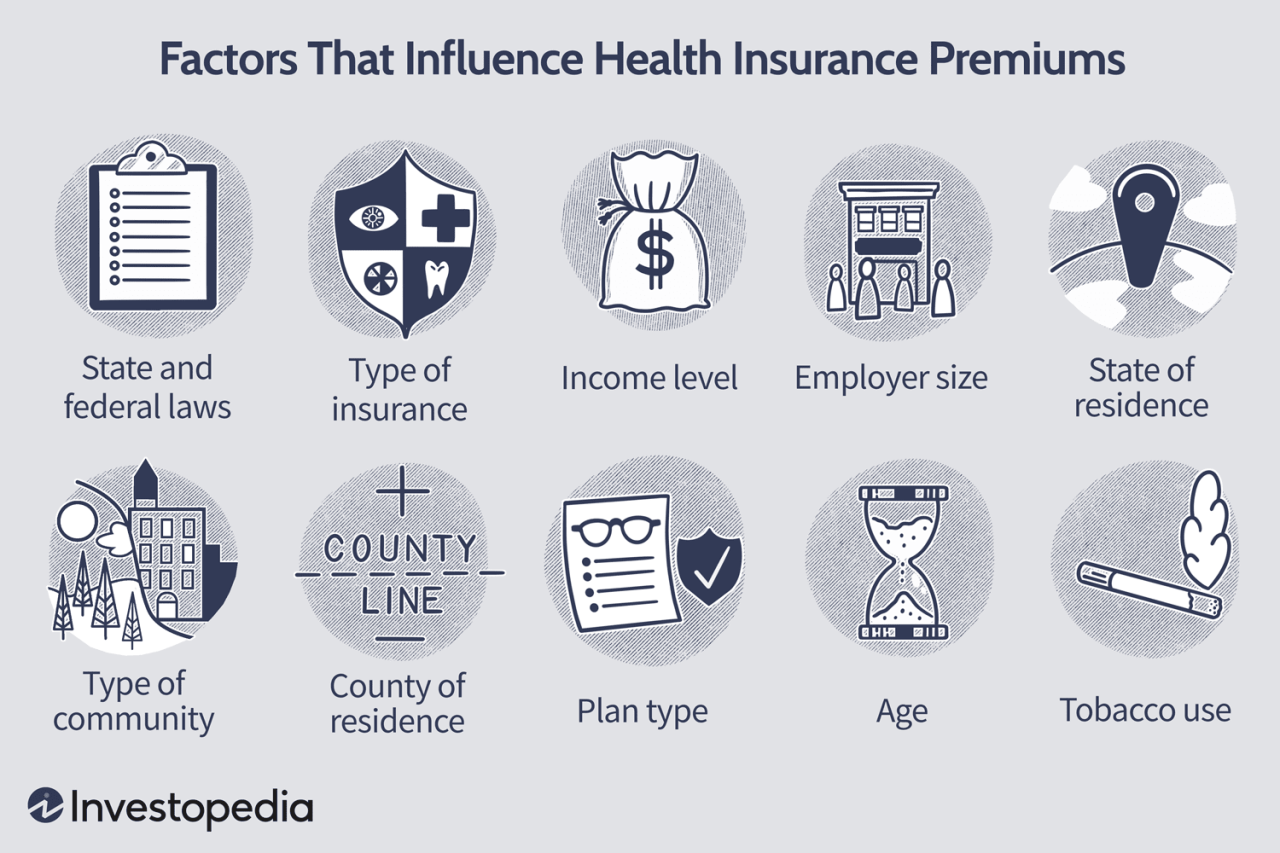Benefits of company health insurance – Company health insurance, a valuable perk offered by many employers, provides numerous benefits to employees, extending beyond simply covering healthcare costs. This comprehensive coverage acts as a safety net, ensuring peace of mind and financial security, while also promoting employee well-being and productivity.
From reduced healthcare expenses and access to preventive care to improved employee morale and retention, company health insurance offers a compelling package that benefits both employees and employers. This article explores the multifaceted advantages of company health insurance, highlighting its impact on individual and organizational well-being.
Financial Benefits

Company health insurance can significantly benefit your finances by reducing healthcare costs and offering financial protection against unexpected medical expenses. By providing coverage for a wide range of medical services, your employer’s health plan can help you save money on out-of-pocket expenses and avoid financial strain.
Cost Savings Through Coverage
Company health insurance plans typically cover a significant portion of healthcare costs, reducing your out-of-pocket expenses. This coverage includes:
- Deductibles: The amount you pay before your insurance starts covering costs. Company health insurance can often lower your deductible compared to individual plans, making it easier to access necessary care.
- Copayments: Fixed amounts you pay for specific services, such as doctor’s visits or prescriptions. Company health insurance often has lower copayments than individual plans, reducing the cost of routine care.
- Coinsurance: The percentage of costs you pay after meeting your deductible. Company health insurance typically covers a larger portion of your healthcare costs, reducing your coinsurance obligations.
Protection Against Unexpected Medical Expenses
Unforeseen medical emergencies can be financially devastating. Company health insurance provides financial protection by covering a wide range of medical services, including:
- Hospitalization: Company health insurance can cover a significant portion of your hospital stay costs, including room and board, surgery, and other related expenses. This can significantly reduce the financial burden of unexpected hospitalizations.
- Prescription Drugs: Company health insurance plans often include prescription drug coverage, ensuring you can afford the medications you need without breaking the bank. This coverage can be particularly valuable for individuals with chronic conditions who require ongoing medication.
- Mental Health Services: Company health insurance plans typically cover mental health services, including therapy and counseling. This can be crucial for employees struggling with mental health issues, providing access to essential care without significant out-of-pocket costs.
Health and Wellness: Benefits Of Company Health Insurance
Beyond the financial benefits, company health insurance plays a crucial role in promoting employee well-being. It empowers employees to prioritize their health and take proactive steps towards a healthier lifestyle.
Preventative Care
Preventative care is essential for early detection and prevention of health issues. Company health insurance encourages regular checkups, screenings, and vaccinations, which can help identify potential problems before they become serious. For instance, regular mammograms can detect breast cancer at an early stage when treatment is most effective. Similarly, routine dental checkups can prevent tooth decay and gum disease.
Access to Healthcare
Company health insurance provides access to a wider range of healthcare providers and services, including specialists, hospitals, and clinics. This ensures that employees have access to the care they need, regardless of their location or financial situation. Imagine an employee needing specialized treatment for a rare condition. With company health insurance, they can access a network of specialists across the country, ensuring they receive the best possible care.
Managing Chronic Conditions
Company health insurance plays a vital role in managing chronic conditions, such as diabetes, heart disease, and asthma. It provides access to specialized care, medication, and support services, enabling employees to manage their conditions effectively and maintain a good quality of life. For example, a diabetic employee can access regular blood sugar monitoring, insulin therapy, and education programs through their company health insurance plan.
This helps them control their blood sugar levels, prevent complications, and lead a healthier life.
Peace of Mind and Security

Company health insurance offers a valuable sense of peace of mind and security for employees. It provides access to quality healthcare, financial protection, and the ability to focus on work without the constant worry of healthcare costs.
Protection from Financial Ruin, Benefits of company health insurance
The cost of unexpected medical expenses can be overwhelming. A serious illness or injury can lead to significant medical bills, potentially causing financial hardship. Company health insurance acts as a safety net, helping employees avoid financial ruin by covering a large portion of their healthcare costs.
Employee Productivity and Retention
A healthy workforce is a productive workforce. Company health insurance can have a significant impact on employee productivity and retention, contributing to a more engaged and motivated team.
Reduced Absenteeism
Company health insurance can lead to a decrease in employee absenteeism due to illness. When employees have access to quality healthcare, they are more likely to seek preventive care and address health issues early, reducing the likelihood of developing serious conditions that could result in extended absences from work. This is especially crucial in today’s demanding work environment.
- Early Detection and Treatment: Regular checkups and access to preventive services can help detect health issues early, allowing for timely treatment and minimizing the potential for complications. This can prevent minor illnesses from escalating into major health problems, leading to longer periods of absence.
- Improved Health Management: Company health insurance provides employees with the tools and resources they need to manage their health effectively.
This includes access to health education programs, wellness initiatives, and support for chronic conditions, empowering employees to take control of their health and reduce the risk of preventable illnesses.
- Reduced Stress and Anxiety: Knowing that they have access to quality healthcare can reduce stress and anxiety for employees, allowing them to focus on their work without the constant worry about their health.
This can lead to improved mental well-being and a more productive workforce.
Improved Employee Morale and Satisfaction
Investing in employee health and well-being is a strong indicator of an employer’s commitment to their workforce. When employees feel valued and supported, they are more likely to be motivated and engaged in their work.
- Enhanced Employee Value: Offering comprehensive health insurance demonstrates that the company values its employees and their well-being. This can boost employee morale and create a sense of loyalty and belonging, contributing to a more positive and productive work environment.
- Reduced Financial Burden: Healthcare costs can be a significant financial burden for individuals. By providing health insurance, companies can help employees alleviate this burden, allowing them to focus on their work and personal lives without the added stress of healthcare expenses.
- Increased Job Satisfaction: Employees who are satisfied with their benefits package, including health insurance, are more likely to be satisfied with their jobs overall. This can lead to higher levels of job satisfaction, increased productivity, and lower turnover rates.
Array
Choosing the right health insurance plan for your company is a crucial decision. It impacts employee well-being, financial stability, and overall business success. There are various types of health insurance plans available, each with its own set of features and benefits. Understanding the differences between these plans is essential to select the one that best suits your company’s needs and your employees’ healthcare requirements.
Common Company Health Insurance Plans
The most common types of company health insurance plans include:
| Plan Type | Description | Key Features | Suitability |
|---|---|---|---|
| Health Maintenance Organization (HMO) | HMOs offer a more affordable option, providing comprehensive coverage through a network of doctors and hospitals. Members must select a primary care physician (PCP) who acts as a gatekeeper for referrals to specialists. |
|
|
| Preferred Provider Organization (PPO) | PPOs offer more flexibility than HMOs, allowing members to choose providers both within and outside the network. However, out-of-network services typically come with higher costs. |
|
|
| Point-of-Service (POS) | POS plans combine elements of both HMOs and PPOs. They typically require a PCP referral for in-network care, but offer limited out-of-network coverage. |
|
|
In conclusion, company health insurance proves to be a valuable investment for both employees and employers. It fosters a healthier workforce, promotes financial stability, and enhances employee satisfaction and productivity. By providing comprehensive coverage and peace of mind, company health insurance empowers employees to focus on their work and live healthier, more fulfilling lives.
FAQ Guide
How does company health insurance affect my taxes?
The premiums you pay for company health insurance are usually pre-tax deductions, which means you save money on taxes. However, the specific tax implications can vary depending on your country and local regulations.
What if I already have health insurance through my spouse?
Even if you have existing health insurance, company health insurance can still be beneficial. It may offer different coverage options, lower premiums, or access to a wider network of healthcare providers.
What happens if I leave my job?
Most company health insurance plans have a grace period after you leave your job, during which you can continue coverage for a limited time. However, the specific terms and conditions vary depending on your plan.